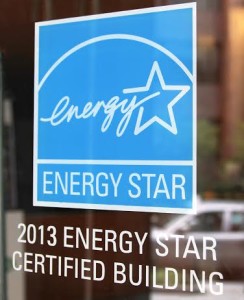Atlanta Announces Policy to Report Buildings’ Energy Consumption
 (APN) ATLANTA — Atlanta’s large commercial buildings will be required to report their water and energy use under a newly adopted City ordinance that aims to reduce commercial energy consumption and cut carbon emissions.
(APN) ATLANTA — Atlanta’s large commercial buildings will be required to report their water and energy use under a newly adopted City ordinance that aims to reduce commercial energy consumption and cut carbon emissions.
Mayor Kasim Reed announced the new policy on Tuesday, April 21, 2015.
“We are building on our success with the Better Buildings Challenge to conserve more energy, boost our local economy and cut pollution. This is the right step for the City of Atlanta, and shows our leadership on the national stage,” Mayor Reed said in a press release.
The Mayor’s Office of Sustainability authored the ordinance and the City Council passed it on April 20, 2015, unanimously, in a vote of ten to zero, with Kwanza Hall (District 2), Alex Wan (District 6), Mary Norwood (Post 2-at-large), Natalyn Archibong (District 5), and Joyce Sheperd (District 12) not voting.
The Natural Resources Defense Council (NRDC), a national environmental organization, also had a hand in crafting the policy. Atlanta is one of ten U.S. cities participating in the group’s City Energy Project.
According to the NRDC, buildings account for sixty-six percent of Atlanta’s energy use. The ordinance is anticipated to lead to a twenty percent energy reduction by 2030 and a fifty percent carbon emissions reduction (from 2013 levels) by 2030.
The ordinance targets private and city-owned buildings that exceed 25,000 square feet.
2,350 buildings meet the criteria for mandatory participation. Municipal buildings will have to comply beginning this year; private buildings will be phased in in 2016.
The plan relies on building owners setting benchmarks for reducing energy consumption and using the U.S. Environmental Protection Agency’s Energy Star certification process to follow through.
Buildings’ Energy Star scores will be made public “to allow the market to recognize, reward, and drive increased demand for high-performing buildings,” according to the Mayor’s press release.
But there is no plan for the government to enforce benchmarks if market forces do not rise to the occasion.
Every ten years, participating buildings will undergo energy audits that will assess energy efficiency and provide recommendations.
(END/2015)
We can hazard a guess that these laws are similar to the “energy ratings” on refridgerators, washers, dryers and television sets.Will we look for a cut yellow label?? How many new employees will have to be hired for these 2100+ buildings.
The city of Atlanta has given into a con job by NRDC. Buildings don’t account for 66 percent of energy use in the city. Forget about transportation, 150000 homes, and other energy users. This is part of an effort promoted by NRDC and the Obama administration to abolish use of the nations abundant, inexpensive, and geographically distributed fossil fuels of coal, oil, and natural gas. In the process of achieving this goal they will bankrupt the nation.
How much money is this Sustainability Office costing? This is tax dollars totally wasted. In addition, the Office will add financial burdens to private business that will make them less competitive. Private business tries to make profits and they monitor water and energy use and do the best possible to reduce these costs.
Offices of Sustainability are infringements on rights. Such laws should be unconstitutional. The City Council was out of its mind to consider such an expense. Voters should hold them responsible for wasting tax dollars.
We have this waste of money and the city won’t fix pot holes that destroy our cars.
James H. Rust, Professor
“Prof.” Rust: “Buildings don’t account for 66 percent of energy use in the city.” On what do you base this comment? What is your estimate if this is incorrect?
From your statements, it is obvious that you (and others? inefficient building owners?) are ignorant of substantial savings to be had in energy and water efficiency. Emory University has saved thousands, perhaps millions through their sustainability efforts. “Offices of Sustainability are infringements on rights.” What about citizens’ rights to live in a city that is environmentally sustainable? Pollution and climate change cost all of us money and our health. NRDC will not “bankrupt the nation.” Those who think we need to feel free to use the “abundant, inexpensive, and geographically distributed fossil fuels of coal, oil, and natural gas” will.